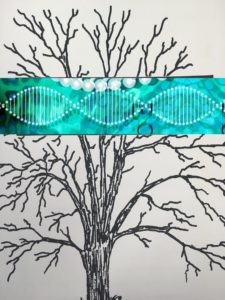
People who submit DNA for ancestry testing can unwittingly become genetic informants on their innocent family members when the police search an ancestry DNA databanks for partial matches. Until there are meaningful statutory protections and robust quality assurance safeguards, law enforcement should not search an ancestry databank for family members related to the individual who submitted the DNA sample. There is too great a risk that familial searching of ancestry databanks will undermine public confidence in the regulated CODIS databank system.
Statutory protections for private DNA databanks are essential. Under pre-DNA era legal doctrines such as “standing,” only the family member who submitted the DNA sample can likely challenge the constitutional reasonableness of the government’s search of a private ancestry DNA databank—not his or her family members who have been the subject of an investigation as a result of the search. The lack of any meaningful statutory privacy protections for ancestry databanks is also a concern because it invites law enforcement to troll these private databanks with low quality DNA that is not permitted in the highly-regulated CODIS databank system.
Long before law enforcement began to troll ancestry DNA databanks—indeed, at least since the onset of forensic DNA databanking—the significance of the familial searching issue and the necessity of legislative engagement with it have been apparent and recognized. Over twenty-five years ago the National Research Council (the principal operating agency of the National Academy of Sciences), said this:
…DNA databanks have the ability to point not just to individuals but to entire families — including relatives who have committed no crime. this poses serious issues of privacy and fairness … [I]t is inappropriate, for reasons of privacy, to search databanks of DNA from convicted criminals in such a fashion. Such uses should be prevented … by statutory guarantees of privacy.
DNA Technology in Forensic Science 87 (1992) (“NRC I”). Despite the NRC’s prescient exhortation for legislative action more than two and a half decades ago to protect family members of a convicted offender in a law enforcement databanks, only Maryland and Washington, D.C., have enacted a law to address the practice. See MD. PUBLIC SAFETY CODE ANN., sec. 2-506(d) (2008); DC ST § 22-4151(b) (2009). There is an obvious anomaly when family members of a person who submits a DNA sample to an ancestry database have fewer privacy protections than family members of convicted offenders whose DNA is contained in regulated databanks. Statutory protections must be enacted to protect the genetic privacy of innocent family members with a relative in a private ancestry databank.
